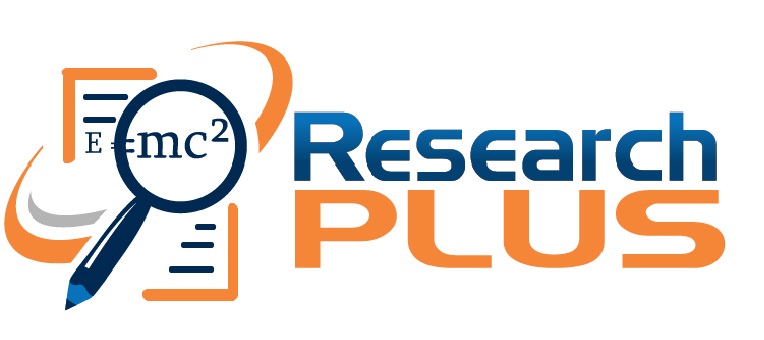-
Paper submission deadline: 30th Mar 2018
-
Early Bird Registration by: 30th Jan 2018
-
Late registration by: 24th Apr 2018
-
Date of Conference: May 11 & 12, 2018




-

-

-

-

-

-
 -->
-->
How to Write a Persuasive and Critical Reflection Paper: A Comprehensive Guide
Writing a reflection paper presents a unique academic challenge. It requires you to not only provide an objective analysis but also express your subjective opinion. This task pushes you to articulate your thoughts on a subject, often asking you to reflect on your experiences or the material you've https://www.vaughantoday.ca/scientific-essay-format-definition-and-features/ studied. Unlike a simple summary, a reflection paper involves analyzing content and presenting your insights persuasively and critically. In this guide, we will walk you through the process of writing a persuasive and critical reflection paper that will impress your professors and peers.
Understanding the Key Elements
To excel in writing a reflection paper, it's crucial to understand the key elements involved. Whether you're a seasoned writer or new to academic writing, mastering these elements will significantly enhance your skills.
Developing Your Point of View
One of the fundamental aspects of critical writing requires you to express your own point of view on the subject matter. Your reflection paper should not be a mere repetition of facts; it should showcase your unique perspective and insights. This is what sets it apart from other types of academic writing.
Incorporating Persuasive Writing
Persuasive writing is an essential skill for crafting a compelling reflection paper. It involves making your arguments and viewpoints convincing and influential. Throughout your paper, you should aim to persuade your readers with well-reasoned arguments and evidence.
Analyzing and Including Evidence
Critical writing requires a deep analysis of the subject matter. It's not enough to state your opinions; you must support them with evidence. This evidence can come from your own experiences, the material you've studied, or external sources. In this guide, we'll show you how to effectively integrate evidence into your reflection paper.
Exploring Different Types of Reflection
Reflection can take various forms, including descriptive, analytical, and critical. Depending on your assignment, you may need to employ different styles of writing. We'll guide you on when and how to use each of these styles to make your paper more engaging and insightful.
The Writing Process
Now that you have a solid understanding of the key elements, let's delve into the writing process. Crafting a persuasive and critical reflection paper involves several steps, each of which plays a crucial role in the final outcome.
Choosing the Right Topic
Before you start writing, selecting an interesting and relevant topic is essential. Your choice of topic will influence the quality of your paper and the engagement of your readers. We'll provide tips on how to select the perfect topic for your reflection paper.
Gathering and Analyzing Information
Research is a crucial part of academic writing. We'll show you how to gather relevant information, analyze it critically, and decide what to include in your paper. Your reflection paper should be well-informed and based on solid research.
Structuring Your Paper
Proper structuring is key to presenting your ideas clearly and logically. We'll guide you on how to organize your paper, from the introduction to the conclusion, ensuring that your readers can follow your arguments effortlessly.
Writing with Persuasion and Critical Insight
The heart of your reflection paper lies in your ability to write persuasively and critically. We'll provide techniques and examples to help you craft compelling arguments, support them with evidence, and make your paper stand out.
Dos and Don'ts of Reflection Paper Writing
To help you avoid common pitfalls and excel in your reflection paper, here are some dos and don'ts to keep in mind throughout the writing process.
Do Express Your Unique Point of View
Your reflection paper should reflect your personal perspective and insights. Don't hesitate to express your opinions, even if they differ from mainstream views.
Don't Simply Summarize
Avoid the trap of merely summarizing the material you've studied. Critical reflection requires you to go beyond the surface and provide in-depth analysis and evaluation.
Do Use Persuasive Language
Employ persuasive writing techniques to make your arguments more compelling. Convince your readers of the validity of your viewpoint through well-crafted prose.
Don't Neglect Evidence
Every claim you make should be backed by evidence. Ensure that you incorporate relevant examples, facts, or findings to support your arguments.
Do Seek Feedback
Don't hesitate to seek feedback from peers or professors. Constructive criticism can help you improve your writing and refine your arguments.
Frequently Asked Questions
Here are some common questions students have about writing reflection papers, along with detailed answers to help you navigate your assignment successfully.
1. What is the difference between a reflection paper and other types of academic writing?
A reflection paper requires you to express your own point of view and reflect on your experiences or the material you've studied. It goes beyond summarization and involves critical analysis and personal insights.
2. How can I make my reflection paper more persuasive?
To make your reflection paper persuasive, focus on crafting well-reasoned arguments, supporting them with evidence, and using persuasive language to convince your readers of your viewpoint.
3. Can I include my own opinions in a reflection paper?
Absolutely! In fact, expressing your own opinions and unique perspective is a key aspect of reflection paper writing. Your personal insights are what make your paper valuable.
4. Do I need to include a literature review in my reflection paper?
Whether or not you include a literature review depends on your assignment requirements. We'll provide guidance on when and how to incorporate a literature review if needed.
Final Thoughts
Writing a persuasive and critical reflection paper is a skill that can serve you well throughout your academic journey. It not only enhances your analytical abilities but also allows you to express your unique perspective. By following the guidelines in this comprehensive guide, you'll be well-equipped to excel in your reflection paper assignments and make your writing stand out.
Remember that practice makes perfect, so don't hesitate to apply these techniques and continuously refine your reflection paper writing skills. With dedication and the right approach, you can become a proficient writer of persuasive and critical reflection papers.
Useful Resources: https://schoolbag.info/language/ap_english_language/5.html




